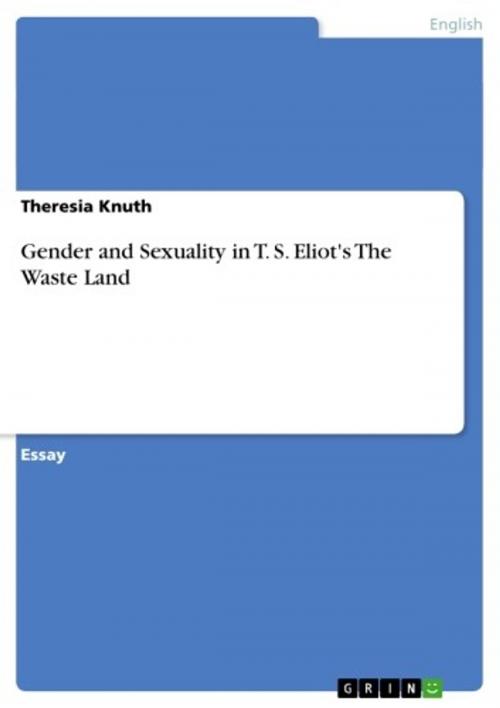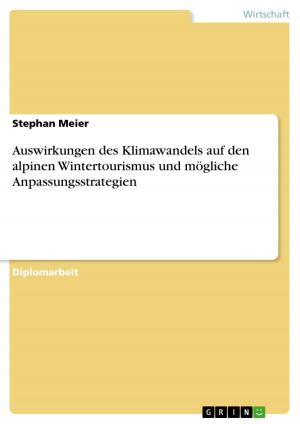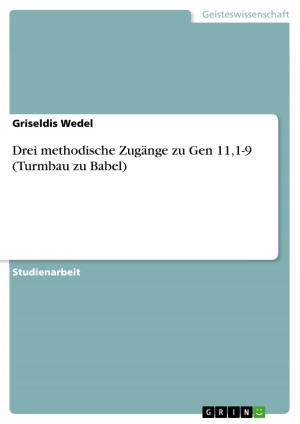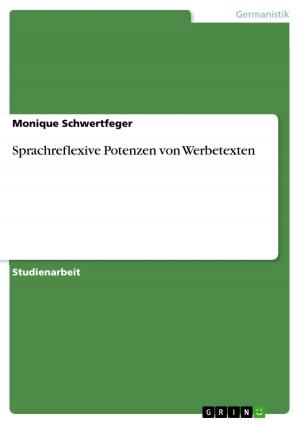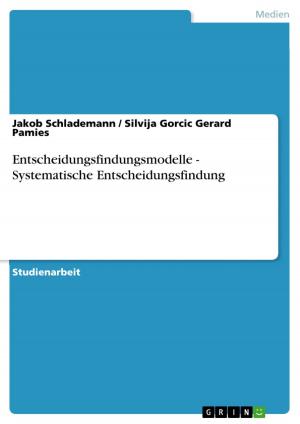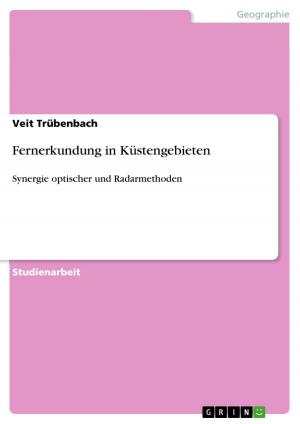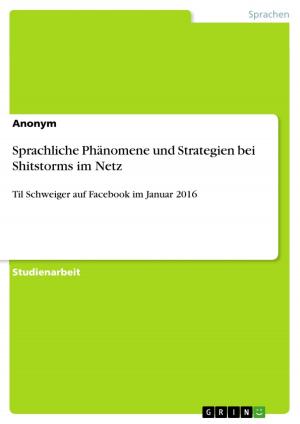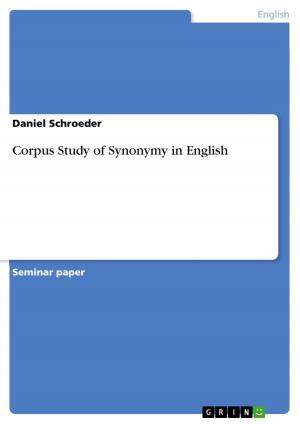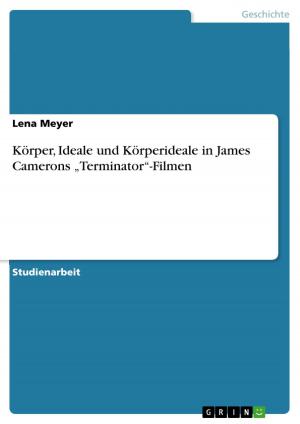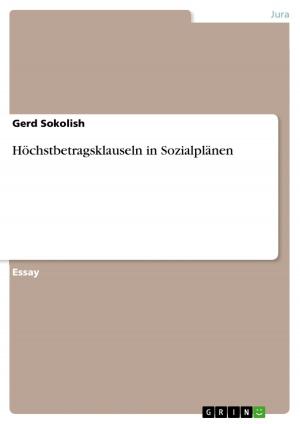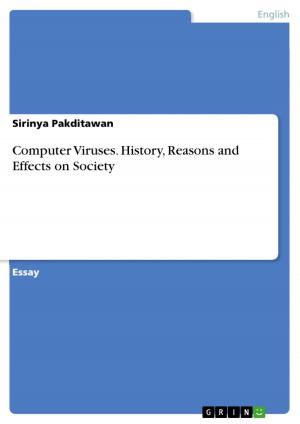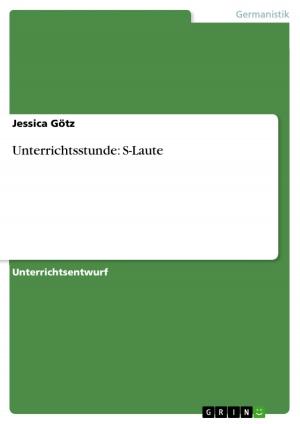Gender and Sexuality in T. S. Eliot's The Waste Land
Fiction & Literature, Literary Theory & Criticism, British| Author: | Theresia Knuth | ISBN: | 9783638614467 |
| Publisher: | GRIN Verlag | Publication: | March 10, 2007 |
| Imprint: | GRIN Verlag | Language: | English |
| Author: | Theresia Knuth |
| ISBN: | 9783638614467 |
| Publisher: | GRIN Verlag |
| Publication: | March 10, 2007 |
| Imprint: | GRIN Verlag |
| Language: | English |
Essay from the year 2007 in the subject English Language and Literature Studies - Literature, grade: A2 (highly excellent), University of Edinburgh (Department of English Literature), course: Modernism, 6 entries in the bibliography, language: English, abstract: The rise of feminist theory during the last decades provoked a reconsideration of the general focus of interpreting literary texts, and literary criticism has been largely engaged in a rereading of canonical author's works in terms of gender and sexuality while many definitions underwent a necessary revision. Modernist works, especially poetry, are a rewarding source for an interpretation in these terms since due to their fragmentary, ambivalent nature and lack of thematic clarity they offer much room for different interpretations. With its predominating sexuality, Freudian psychoanalysis and questions of sex and gender sneaked into the modernist world. In this essay I will attempt a reading of T. S. Eliot's The Waste Land in order to see in how far such issues are implied. 1 My understanding of 'gender' follows that of Judith Butler, who pointed out that gender is not only socially constructed in discourse rather than biologically predetermined, but also performative. 2 This is quite evident in Eliot's poem. Moreover, in modernist texts sexuality seems to lose romance and meaning. In Eliot's case such a loss seems connected with personal experience. His marriage with Vivien Haigh-Wood was problematic from the beginning on and worsened increasingly, and while working on The Waste Land he had a nervous breakdown. The poem is divided into five parts and features various narrative voices which cannot always be identified unmistakably, especially in terms of the speaker's gender. In order to examine the depiction of gender and sexuality in the poem, I will proceed mostly chronologically and focus on the depiction of the love relationships. Due to the limited scope of this paper I cannot, by far, include all relevant themes, let alone the numerous other related fragments and themes. The focus is therefore on the hyacinth girl, the Fisher King and Phlebas / Eugenides, the couple and Lil and Philomel, as well as Tiresias and the typist. Images of fertility and homoerotic desire will be considered alongside the character depictions. [...]
Essay from the year 2007 in the subject English Language and Literature Studies - Literature, grade: A2 (highly excellent), University of Edinburgh (Department of English Literature), course: Modernism, 6 entries in the bibliography, language: English, abstract: The rise of feminist theory during the last decades provoked a reconsideration of the general focus of interpreting literary texts, and literary criticism has been largely engaged in a rereading of canonical author's works in terms of gender and sexuality while many definitions underwent a necessary revision. Modernist works, especially poetry, are a rewarding source for an interpretation in these terms since due to their fragmentary, ambivalent nature and lack of thematic clarity they offer much room for different interpretations. With its predominating sexuality, Freudian psychoanalysis and questions of sex and gender sneaked into the modernist world. In this essay I will attempt a reading of T. S. Eliot's The Waste Land in order to see in how far such issues are implied. 1 My understanding of 'gender' follows that of Judith Butler, who pointed out that gender is not only socially constructed in discourse rather than biologically predetermined, but also performative. 2 This is quite evident in Eliot's poem. Moreover, in modernist texts sexuality seems to lose romance and meaning. In Eliot's case such a loss seems connected with personal experience. His marriage with Vivien Haigh-Wood was problematic from the beginning on and worsened increasingly, and while working on The Waste Land he had a nervous breakdown. The poem is divided into five parts and features various narrative voices which cannot always be identified unmistakably, especially in terms of the speaker's gender. In order to examine the depiction of gender and sexuality in the poem, I will proceed mostly chronologically and focus on the depiction of the love relationships. Due to the limited scope of this paper I cannot, by far, include all relevant themes, let alone the numerous other related fragments and themes. The focus is therefore on the hyacinth girl, the Fisher King and Phlebas / Eugenides, the couple and Lil and Philomel, as well as Tiresias and the typist. Images of fertility and homoerotic desire will be considered alongside the character depictions. [...]
